Michelle Worthington's Blog, page 23
November 18, 2015
Is there a glass ceiling in the Australian picture books market?
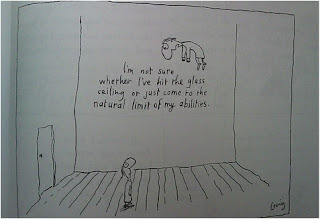
For a long time, the same established Australian authors have dominated the children's and YA market. As bookshops struggle to stay financially viable, it is understandable that they stock their shelves with books that 'sell'. Where does this leave the next generation of children's authors?Australia is not known for its support of creative endeavours or literary personalities, as opposed to personalities who get book deals because of their fame. First time or emerging authors are already facing an uphill battle with the cancellation of arts grants and funding. Until our local, state and federal government supports the arts as much as it does other interests, it is going to be very difficult to uncover new talent, let alone nurture and foster it.Every time you buy a book direct from the author, or order a book through your local bookstore for a title that is not stocked on the shelves, you are helping to change the face of Australian literacy and break the glass ceiling that has kept amazing authors from sharing their stories on a wider scale. We owe it to our children to promote diversity in children's literature and that means supporting diverse authors.I long for the day when well known and well read Australian children's book authors number more than 3. What we need is a glass elevator, not a glass ceiling.
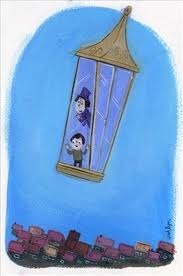
Talk soon
x Michelle
www.michelleworthington.comwww.michelleworthington.com
Published on November 18, 2015 08:00
November 17, 2015
Proud SCBWI Member since 2011
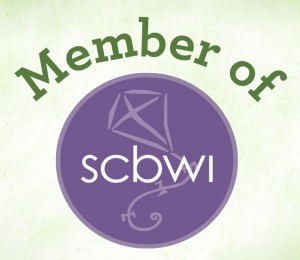 I just renewed by SCBWI membership for the fourth year! It may not seem like much, but since 2011 I have released 8 beautiful children's books and by renewing my membership, it shows I have more to come!
I just renewed by SCBWI membership for the fourth year! It may not seem like much, but since 2011 I have released 8 beautiful children's books and by renewing my membership, it shows I have more to come! Hundreds of childrens' book writers and illustrators live and work throughout Australia. Some are creating books full-time while others like me are supported by day jobs to contribute to the wonderful anthology of children's books that are being created on our continent and promote them internationally.
Founded in 1971, the Society of Children's Book Writers and Illustrators is a world wide organization with over 20,000 members and chapters in 17 countries, making it the largest children's writing organization in the world. It is the international professional organization for writers and illustrators of children's literature.
In Australia, the SCBWI aims to support professional children's book writers and illustrators by keeping them up to date with industry knowledge, publishers - and each other. They focus on selling our work to both the Australian and international markets, especially the USA.
Australian SCBWI members receive a huge range of resources and information including:
An Australian email newsletter and updates on markets, current trends in publishing and news of events both here and overseasInvitations to events both nationally and internationallyA quarterly magazine full of the latest USA informationThe international e-news Expression Online with news from around the worldLinks to Australian specific resources including publishers and associationsAs part of the membership, you will receive information and support, access to awards and grants, volunteer opportunities, exclusive information, podcasts, conferences and most importantly, networking with other members in your local area and internationally via the online community.
Do check out the official SCBWI website at: www.scbwi.org. This has lots of free resources!
https://www.scbwi.org/members/michelle-worthington/
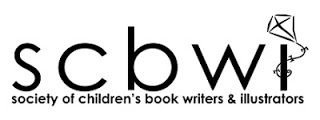
Contact me if you have any further questions,
Talk soon
x Michelle
www.michelleworthington.com
www.michelleworthington.com
Published on November 17, 2015 08:00
November 16, 2015
The Money Tree for Authors
 One of my least favourite sayings is “what would you do if you knew you could not fail.” Even though I believe in the concept, the question should be “what would you do if money was no object.” As most struggling artists know, living your dreams and earning a living from your dreams are two very different things. For most writers, it is not our primary occupation, even though it occupies our minds all of the time. Finding a balance between feeding your soul and feeding your children is not easy. But it is a necessary evil. I could no more stop writing than I could stop breathing, but I work a part time job to support my family and do not have enough capital to do all the projects I would like to. They say you have to have approximately 10 good selling books to make a part time income from your writing. By March 2016 I will have 10 and I am nowhere near close. My goal is become a full time writer, which in my definition means earning a full time income from my books. I have a 5 year business plan in order to achieve this goal. If you are serious about being a professional writer, you need to be an author, a marketing specialist, an IT genius, a creative accountant, a master negotiator and a little bit crazy. Luckily, I have the last bit down pat!
One of my least favourite sayings is “what would you do if you knew you could not fail.” Even though I believe in the concept, the question should be “what would you do if money was no object.” As most struggling artists know, living your dreams and earning a living from your dreams are two very different things. For most writers, it is not our primary occupation, even though it occupies our minds all of the time. Finding a balance between feeding your soul and feeding your children is not easy. But it is a necessary evil. I could no more stop writing than I could stop breathing, but I work a part time job to support my family and do not have enough capital to do all the projects I would like to. They say you have to have approximately 10 good selling books to make a part time income from your writing. By March 2016 I will have 10 and I am nowhere near close. My goal is become a full time writer, which in my definition means earning a full time income from my books. I have a 5 year business plan in order to achieve this goal. If you are serious about being a professional writer, you need to be an author, a marketing specialist, an IT genius, a creative accountant, a master negotiator and a little bit crazy. Luckily, I have the last bit down pat! www.michelleworthington.com
www.michelleworthington.com
Published on November 16, 2015 08:00
November 13, 2015
Yellow Dress Day By Michelle Worthington and Sophie Norsa
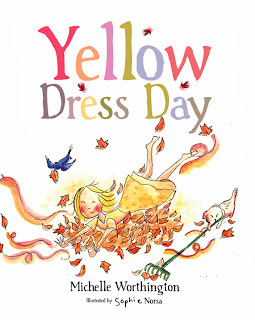 Reading Age: 4-6
Reading Age: 4-6Release Date: September 1, 2012
Ava wears a different coloured dress for each type of day - a red dress for hot days, a purple dress for rainy days and a blue dress for cold days.
One whistling, whirly, windy morning, Ava and her puppy want to go out and play. But Ava’s favourite coloured dress was missing. Will Ava’s mother find something for her to wear on her yellow dress day?
This book will delight all young girls and appeal to any parent of a child with special needs. The book is dedicated to Ava who has Rett Syndrome.
Rett syndrome is a rare, but severe brain disorder that affects mainly girls. It's usually discovered in the first two years of life, and a child's diagnosis with Rett syndrome can feel overwhelming. Although there's no cure, early identification and treatment may help girls and families who are affected by Rett syndrome.
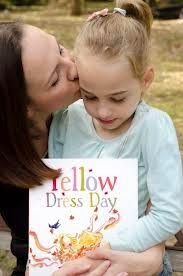 Sophie says: When I was first asked to illustrate
Yellow Dress Day
by Michelle Worthington, I couldn’t believe my luck. At age seventeen, this was my first step into the world of publishing, and I have to admit that at times I was just playing it by ear and taking each step as it came.
Sophie says: When I was first asked to illustrate
Yellow Dress Day
by Michelle Worthington, I couldn’t believe my luck. At age seventeen, this was my first step into the world of publishing, and I have to admit that at times I was just playing it by ear and taking each step as it came.Being so young and never having illustrated professionally, I really wanted to produce something unique and attention-grabbing, so I put a lot of thought into the detail of each illustration. To me, the most important part of Yellow Dress Day was colour. It had to be sunny and bright, and by the end of it my pink watercolour became severely depleted! The story was created by Michelle with the intent of raising funds for the International Rhett’s Syndrome Foundation, which supports a degenerative condition that has great impact on those who suffer it. I wanted to inject some light into this somber topic, to remind the readers that even the hardest things in life can be overcome with joy.
While colour became important to the mood of the book, movement was integral to the story. I wanted to create a dynamic narrative which reflected Michelle’s transition through the seasons. The most prominent motif became the swirl of colour, to show wind and wildness and how life can be unpredictable. I also became fond of drawing a small white puppy, who moved through the story with the main character and with a sub-plot of his own.
Sophie Norsa was shortlisted for the Crichton Award for her illustrations in Yellow Dress Day.
Watch this delightful picture book being read aloud on Play School.
 Funds from the sale of Yellow Dress Day are donated to International Rett Syndrome Foundation in the name of Ava Larder.
Funds from the sale of Yellow Dress Day are donated to International Rett Syndrome Foundation in the name of Ava Larder. http://www.michelleworthington.com/www.michelleworthington.com
Published on November 13, 2015 08:00
November 12, 2015
Money Matters for Authors
Why More Authors Should Be Aware of Finances & Banking
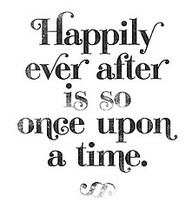 Many authors would be wise to pay more attention to their finances and to financial planning.
Many authors would be wise to pay more attention to their finances and to financial planning.
In particular, women often do not realize they face greater financial challenges than men do. Moving in and out of the traditional workforce for family responsibilities, generally outliving men by seven years and typically earning less money are considerations women must weigh, planning for income alongside the funds they may make from writing books.
Most people do not know how much they need to save to maintain a comfortable retirement. Stephen Rothschild, a financial adviser with MDRT, says you'll need 70 percent of your current annual household income in retirement.
• Be financially aware - make sure you're aware of all decisions made regarding your finances around your books, writing and author visits including how much you are spending on stock and marketing. Spouses should participate equally in planning and savings decisions. Don't hide how much you are making, or not making. Security in retirement means too much to leave it to chance or leave it too late.
Failing to save for retirement can close off lifestyle options and limit how you live during your golden years. Everything from health care and housing to travel depends on how much money you saved before you retire. If you put all of your hopes into making a living off writing books, and it's not working, do you have a back up plan?
"Remember that the buck stops with you," advises MDRT's Rothschild. "You are the one responsible for planning for your future and the more effort you put forth, the more benefits you will reap." It's not a fun or creative thing to think about, but it is part of your business plan as a successful author. Do you have a Plan B?
 Talk soon,
Talk soon,
Michelle
Follow her journey on Facebook at Michelle Worthington - Author
http://www.facebook.com/michelleworthington.authorwww.michelleworthington.com
 Many authors would be wise to pay more attention to their finances and to financial planning.
Many authors would be wise to pay more attention to their finances and to financial planning. In particular, women often do not realize they face greater financial challenges than men do. Moving in and out of the traditional workforce for family responsibilities, generally outliving men by seven years and typically earning less money are considerations women must weigh, planning for income alongside the funds they may make from writing books.
Most people do not know how much they need to save to maintain a comfortable retirement. Stephen Rothschild, a financial adviser with MDRT, says you'll need 70 percent of your current annual household income in retirement.
• Be financially aware - make sure you're aware of all decisions made regarding your finances around your books, writing and author visits including how much you are spending on stock and marketing. Spouses should participate equally in planning and savings decisions. Don't hide how much you are making, or not making. Security in retirement means too much to leave it to chance or leave it too late.
Failing to save for retirement can close off lifestyle options and limit how you live during your golden years. Everything from health care and housing to travel depends on how much money you saved before you retire. If you put all of your hopes into making a living off writing books, and it's not working, do you have a back up plan?
"Remember that the buck stops with you," advises MDRT's Rothschild. "You are the one responsible for planning for your future and the more effort you put forth, the more benefits you will reap." It's not a fun or creative thing to think about, but it is part of your business plan as a successful author. Do you have a Plan B?
 Talk soon,
Talk soon,Michelle
Follow her journey on Facebook at Michelle Worthington - Author
http://www.facebook.com/michelleworthington.authorwww.michelleworthington.com
Published on November 12, 2015 08:00
November 11, 2015
Tips for Authors to establish a writing routine
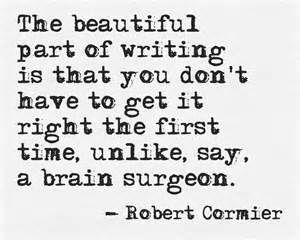 The most important thing you can do as an aspiring author is establish a routine as quickly as you can. Anticipation, predictability and routine are useful principles in getting and keeping your creative juices flowing.
The most important thing you can do as an aspiring author is establish a routine as quickly as you can. Anticipation, predictability and routine are useful principles in getting and keeping your creative juices flowing. Establishing a routine Sometimes the simplest tools and practices can evoke the greatest transformation in your writing· Consistency in routine. · Changes will happen, stay informed and plan ahead to reschedule writing times.· Deep breathing.· Positive non-material/non-food based rewards instead of mental punishment if it doesn't happen as expected. · Involve your writing time in family decision making.· Limit the amount of current affairs and news you watch, read or hear unless it is research for writing. Write instead· Provide a place in the home that is solely for your use.· Read.· Listen to people without interrupting. Be in the moment.· Recognize the physical signs of anxiety with your writing. Take a break.· Discourage avoidance of situations and events that can help your writing or writing career. · Get into a sport or do yoga/mediation.· Purchase a relaxation CD to play while writing.· Avoid too much chocolate and soft drinks. Coffee is the lifeblood of an author, so...· Keep the room clutter free.· Make sure you get sufficient sleep.· Turn off all forms of social media alerts while you are writing.· Spend some time every day talking out your writing experiences with other authors. Please feel free to contact me if you would like to talk about your writing experiences, I would love to help!Talk soon
x Michelle
You can follow Michelle on Facebook http://www.facebook.com/michelleworthington.authorwww.michelleworthington.com
Published on November 11, 2015 08:00
November 10, 2015
Top 5 tips for Authors to be Practical about Money
Publishing and Money...Bah Humbug

Our attitude towards money is determined by our inner dialogue and state of mind rather than our bank balance. Financial success may result in temporary feelings of excitement just as financial failure may lead to depression. But our innate sense of happiness with our lives in general will tend to readjust to a ‘normal’ level. This is referred to as ‘adaptation’. We do it every day. The external conditions may differ: a lotto win, a fight about money with our partner, a pay rise or a large car repair bill can play with our emotions. Our internal happiness limiter is determined by our ability to perceive the situation and our level of satisfaction with what we already have. Our attitude towards money determines how happy we are with the trials and tribulations of our daily lives.
Discover and develop a healthy respect for money before you begin your publishing journey to financial security. As you make practical and positive changes in your life, you will develop a relationship with money based on negotiation, not dominance. Excessive financial desires lead to greed. In its simplest terms, greed is inflated expectations. It can only lead your attitude towards money towards feelings of frustration, disappointment and confusion. Even when you get what you want, you are not satisfied and your wants become limitless. The only way to combat greed is by being truly honest about your financial situation and thankful and grateful for what you already have.

Financial security as an author is an achievable goal. In simplest terms, it is being patient and holding on for the long term until you start earning more than you spend. The process for achieving financial security is equally as uncomplicated. Identify the factors in your author business that make money and those factors which cost money. Determine if you are receiving all the income you are entitled to. Then gradually eliminate those factors which lead to an unfulfilling discharge of cash. The result is more money flowing in than out. If you earn less, spend less.
If you don’t know where your money is flowing, you can’t make it work for you.
- Do you know where your money goes? - What do you spend money on?- How do you need to make ends meet until your author income increases?
You should have money left over at the end of the month but the reality for most of us is that there is often none. If there is none left over, there is none to allocate to investment into your books that will help make you make more money. Publishing a book can be a difficult business and not often a profitable one.
It is not how much you earn, but how much you keep and what you do with it that counts.
Decide on a workable definition of what financial success as an author means to you. The aim is to provide the quality of life you desire. Make a mental model of what your life will be like when you achieve it. It may change over time and be influenced by economic, social and health conditions. It has to be flexible enough for you to incorporate new and equally exciting ways of reaching your goal. Look at your current financial position and make sure your mental model is achievable. Setting unrealistic expectations will only further frustrate an already testing task.
Maximize Your Author Income with these top 5 tips1. Set an income goal.2. Know what you are entitled to (ELR, PLR etc).3. Learn about different ways of making more money as an author
4. Set a marketing budget, put your money into areas that work at building your platform
5. Find an accountant that has had experience lodging tax returns for authors
When you are a creative person, it can be very difficult to get your head around the business side of being an author. To be successful and have a long term career, you need to approach your writing as a business. You are the CEO of your own empire, how big it grows is up to you.
Talk soon,
Michelle
www.michelleworthington.com www.michelleworthington.com

Our attitude towards money is determined by our inner dialogue and state of mind rather than our bank balance. Financial success may result in temporary feelings of excitement just as financial failure may lead to depression. But our innate sense of happiness with our lives in general will tend to readjust to a ‘normal’ level. This is referred to as ‘adaptation’. We do it every day. The external conditions may differ: a lotto win, a fight about money with our partner, a pay rise or a large car repair bill can play with our emotions. Our internal happiness limiter is determined by our ability to perceive the situation and our level of satisfaction with what we already have. Our attitude towards money determines how happy we are with the trials and tribulations of our daily lives.
Discover and develop a healthy respect for money before you begin your publishing journey to financial security. As you make practical and positive changes in your life, you will develop a relationship with money based on negotiation, not dominance. Excessive financial desires lead to greed. In its simplest terms, greed is inflated expectations. It can only lead your attitude towards money towards feelings of frustration, disappointment and confusion. Even when you get what you want, you are not satisfied and your wants become limitless. The only way to combat greed is by being truly honest about your financial situation and thankful and grateful for what you already have.

Financial security as an author is an achievable goal. In simplest terms, it is being patient and holding on for the long term until you start earning more than you spend. The process for achieving financial security is equally as uncomplicated. Identify the factors in your author business that make money and those factors which cost money. Determine if you are receiving all the income you are entitled to. Then gradually eliminate those factors which lead to an unfulfilling discharge of cash. The result is more money flowing in than out. If you earn less, spend less.
If you don’t know where your money is flowing, you can’t make it work for you.
- Do you know where your money goes? - What do you spend money on?- How do you need to make ends meet until your author income increases?
You should have money left over at the end of the month but the reality for most of us is that there is often none. If there is none left over, there is none to allocate to investment into your books that will help make you make more money. Publishing a book can be a difficult business and not often a profitable one.
It is not how much you earn, but how much you keep and what you do with it that counts.
Decide on a workable definition of what financial success as an author means to you. The aim is to provide the quality of life you desire. Make a mental model of what your life will be like when you achieve it. It may change over time and be influenced by economic, social and health conditions. It has to be flexible enough for you to incorporate new and equally exciting ways of reaching your goal. Look at your current financial position and make sure your mental model is achievable. Setting unrealistic expectations will only further frustrate an already testing task.
Maximize Your Author Income with these top 5 tips1. Set an income goal.2. Know what you are entitled to (ELR, PLR etc).3. Learn about different ways of making more money as an author
4. Set a marketing budget, put your money into areas that work at building your platform
5. Find an accountant that has had experience lodging tax returns for authors
When you are a creative person, it can be very difficult to get your head around the business side of being an author. To be successful and have a long term career, you need to approach your writing as a business. You are the CEO of your own empire, how big it grows is up to you.
Talk soon,
Michelle
www.michelleworthington.com www.michelleworthington.com
Published on November 10, 2015 08:00
November 9, 2015
Top 3 ways parents can help Reluctant Readers
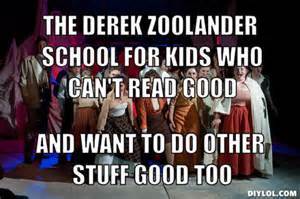
These days, kids who are not confident readers are labelled 'reluctant.' This to me seems a very generic word that doesn't take into account the many and varied reasons a child is not reading at their 'age appropriate' level. As a parent, you need to take charge of this. Here are some very simple ideas you can look into, to get a more comprehensive explanation about why your child has been put in the 'too hard' basket.
First, have their eyes checked. Most optometrists recommend your children be examined every year for families with older siblings/parents who wear glasses and every two years otherwise. Kids don't know if their vision is unclear, but you can see tell tale signs of squinting, holding the book too close or far away and getting headaches after school. In most cases, eye checks are bulk billed so it wont cost you anything to check.
Secondly, set a trap to catch your child reading. It is important watch your child at home to find out their reading habits. Its a good idea to look and see if they are independently reading to themselves if there are books 'left out' for them to pick up. If they have no problems reading and understanding an age appropriate book in their heads, you might find the real problem lies with them not wanting to read out loud. Unfortunately, this is the only way a teacher can determine if they are reading correctly so you need to get them used to it, at least just for school. A good thing to mention is that they don't have to read aloud forever, just until the teacher can see they are reading all by themselves.
If they are still struggling, here are some simple tips to get them used to the sound of their own voice.
Step1: get them to hum while they are reading, not saying any words, just making a sound so they have to learn to read and listen to their own voice at the same time.
Step 2: start saying the words but in a very flat, low monotone voice, with no expression. It is harder than it sounds and the kids will soon learn that it is easier to read with a natural intonation.
Step 3: when they are confident, as the teacher for a private before or after school appointment and have your child read them with no other kids listening so they can see the level of reading your child is actually attaining. Hopefully then, if you have a good teacher, they can help your child with other confidence boosting techniques in the class room to encourage them to read in front of others.
Thirdly, if your child is really struggling with learning to read, have them independently assessed by a speech pathologist. Many learning difficulties are overlooked because children fudge through reading time and are kept at a level under their actual comprehension in their early years of schooling and then slip through the cracks in older grades when reading becomes more independent. You know your child better than anyone else, and teachers have so much pressure on them these days with work load and extra responsibilities, it is our responsibility as parents to take matters into our own hands and go into bat for our kids when we know something is just not quite right.
Of course, the other way is just to take them to the book store and library and let them dig around until something catches their attention. It only takes one book where children can see their own reflection for them to become life long readers.
So when your 'reluctant' reader says to you:
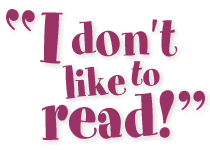 take the time to dig a little deeper and don't let your square peg be dismissed because they don't fit into the system's round hole. Reading is a life skill that is essential to all future endeavours and you can never do too much to ensure your child feels comfortable learning to read. It is absolutely within your power to give your child the gift of reading. Talk soon,x Michellewww.michelleworthington.comwww.michelleworthington.com
take the time to dig a little deeper and don't let your square peg be dismissed because they don't fit into the system's round hole. Reading is a life skill that is essential to all future endeavours and you can never do too much to ensure your child feels comfortable learning to read. It is absolutely within your power to give your child the gift of reading. Talk soon,x Michellewww.michelleworthington.comwww.michelleworthington.com
Published on November 09, 2015 08:00
November 6, 2015
Morning Coffee with my Guardian Angel
 My poor old guardian angel. I'm pretty sure I've had the same one for a while now, even if they did take some time off on stress leave. We have been through the ringer the last couple of years with me asking for way more than I know was always possible for my angel to deliver, but somehow they came through. Healthy babies, happy kids and helpful hubbies aren't easy to come by, but my guardian angel delivered.
My poor old guardian angel. I'm pretty sure I've had the same one for a while now, even if they did take some time off on stress leave. We have been through the ringer the last couple of years with me asking for way more than I know was always possible for my angel to deliver, but somehow they came through. Healthy babies, happy kids and helpful hubbies aren't easy to come by, but my guardian angel delivered.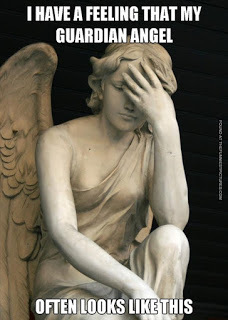 Every morning, after the kids have gone to school, hubby is at work and baby is asleep, I sit down and have a coffee with my guardian angel. Sometimes we laugh, sometimes we cry but mostly we both just shake our head and sigh. My angel knows how grateful I am, how extremely blessed my life has been even with the rough patches and times of stress and sadness and how I know it has made me into the person I am today. If my angel only knew the life I was destined for, I wonder if they still would have picked me. I hope so. I hope there is enough wonder and sparkle left in the future for them to want to hang on, and enough good times ahead for the pain to be worth it. I highly recommend taking some time out of your busy day to have a coffee with your guardian angel. Just to sit, reflect and say thank you. Your guardian angel might be someone here on earth. Mine is watching over me, keeping me safe, and pouring yet another drink. Cheers. Talk soonx Michelle
Every morning, after the kids have gone to school, hubby is at work and baby is asleep, I sit down and have a coffee with my guardian angel. Sometimes we laugh, sometimes we cry but mostly we both just shake our head and sigh. My angel knows how grateful I am, how extremely blessed my life has been even with the rough patches and times of stress and sadness and how I know it has made me into the person I am today. If my angel only knew the life I was destined for, I wonder if they still would have picked me. I hope so. I hope there is enough wonder and sparkle left in the future for them to want to hang on, and enough good times ahead for the pain to be worth it. I highly recommend taking some time out of your busy day to have a coffee with your guardian angel. Just to sit, reflect and say thank you. Your guardian angel might be someone here on earth. Mine is watching over me, keeping me safe, and pouring yet another drink. Cheers. Talk soonx Michellewww.michelleworthington.com
Published on November 06, 2015 09:00
November 5, 2015
Author Tips for Embracing Diversity in Picture Books
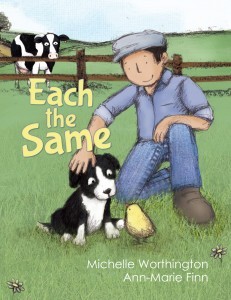 One of the great challenges for picture book authors, illustrators and publishers in today's diverse society is to understand how to cater for the needs of all readers within traditional publishing structures. The imperative for modern authors has been the need to acknowledge and build on the language and cultural diversity of modern readers. Through understanding of the differences between the books that are currently available and what is required to give children the best chance to succeed in become life long readers, particularly for children from families where English is not the first language, we can better bridge the gap between traditional and modern literacy.
One of the great challenges for picture book authors, illustrators and publishers in today's diverse society is to understand how to cater for the needs of all readers within traditional publishing structures. The imperative for modern authors has been the need to acknowledge and build on the language and cultural diversity of modern readers. Through understanding of the differences between the books that are currently available and what is required to give children the best chance to succeed in become life long readers, particularly for children from families where English is not the first language, we can better bridge the gap between traditional and modern literacy. Difficulties and inequalities emerge when publishers are unaware of the needs of diverse children, when it todays market it is easier to publish a book that they know will definitely sell well compared to taking a chance on a book with a potentially smaller demographic in some cases with a smaller disposable income. Everything comes down to money, from the publishers trying to stay financially viable to the bookstores wanting to make enough money to cover the rent. I would like to challenge the misconception that diverse books don't sell.

Using various types of stories in a practical and purposeful manner provides children of all demographics with opportunities for developing their understanding of different people, places and situations and they would become empowered by knowing about things they would otherwise have never encountered in their own society. Parents and teachers are open to sharing new experiences with children. Children are learning from a young age that they are already part of a global family.
Much of this knowledge is already available on the internet but not in an age appropriate or learning format. It is an opportunity to harness an interest in learning via social media and redirecting it into an authentic literacy experience. Children will find their own reflection in diverse stories and make individual interpretations to find meaning, with everyone having an equal opportunity to become book lovers.
Whose world view is your child being exposed to?
Whose voice isn't being heard?
We need diverse books.
Talk soon
x Michelle
www.michelleworthington.com
www.michelleworthington.com
Published on November 05, 2015 09:00



